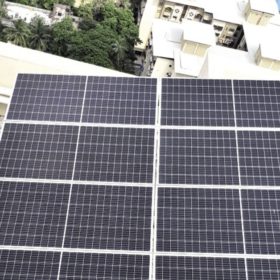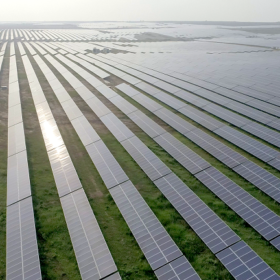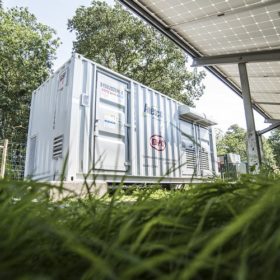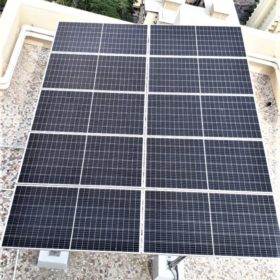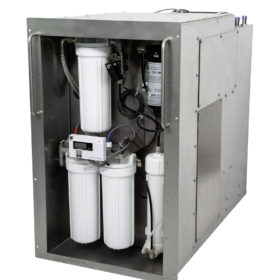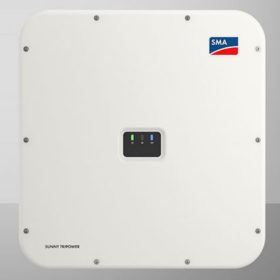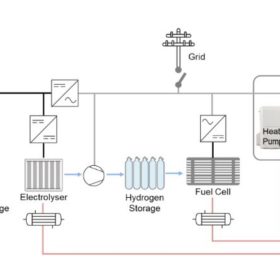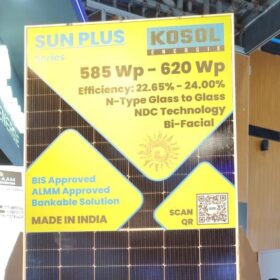India added a record 13.5 GW of solar and wind capacity in 2021-22
The nation installed 12,438 MW of solar (10,217 MW utility-scale and 2,221 MW rooftop) and 1,111 MW wind during the 12 months ending March 31, 2022. The record addition was mainly due to the completion of projects delayed from the previous year.
Irena fleshes out chilling effect of Covid on off-grid solar
The clean power numbers published annually by the International Renewable Energy Agency provide a snapshot of the global solar market and, this year, a lot of figures were unchanged from the previous dataset, especially in the off-grid segment.
Madhya Pradesh renewable energy capacity grew 32-fold in 12 years
The State has reached 5,152 MW of installed renewable energy capacity, including 2,444 MW of wind, 2,490 MW solar, 119 MW biomass, and 99 MW small hydropower.
India may miss 2022 solar target of 100GW by 27%
A new report by JMK Research and the Institute for Energy Economics and Financial Analysis (IEEFA) says India is likely to miss its ‘100GW by 2022’ solar target by about 27GW, mainly due to the underwhelming growth of rooftop solar. While utility-scale solar is on track to achieve nearly 97% of the 60GW installed capacity targeted by 2022, rooftop solar will be 25GW short of the 40GW mark.
APAC to lead global battery storage market, clock 68% share by 2026
The global battery energy storage market will grow to $10.84 billion in 2026, with around two-thirds of the demand concentrated in the Asia Pacific region.
Madhya Pradesh seeks EPC contractors for 20MW of residential rooftop solar
April 25 is the deadline to lodge the interest in installing and commissioning grid-connected rooftop solar plants in various sizes for residential consumers in the State.
Modular electrolyzer for residential, commercial applications
Germany’s Ostermeier H2ydrogen Solutions has developed an electrolyzer that works with tap water, with bottles to store hydrogen and a fuel cell or a Wankel engine to produce electricity. The system has a capacity ranging from 1kW to 100 kW, which corresponds to hydrogen production of 0.2-20 Nm3/h.
SMA unveils new inverter for residential, commercial PV
SMA is offering a new line of four inverters with power ratings of 12kW, 15kW, 20kW and 25kW, for use in rooftop PV systems up to 135kW in size. It claims the inverters provide grid-compliant power control of entire systems and enable over-dimensioning of PV arrays by up to 150%.
India’s solar report card for 2021
India added 10.4GW of solar power generation capacity in the January-December period of 2021. Out of this, 42% was installed in Rajasthan alone.
Designs for solar+storage+hydrogen systems in buildings
German scientists have tried to determine whether a PV system linked to a small electrolyzer, a fuel cell, and lithium-ion batteries could fully power a grid-connected household. Their new proposal consists of a 6.8kW PV array, a 5kW electrolyzer, a 1.24kW fuel cell system, and battery storage.
